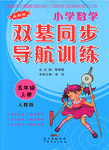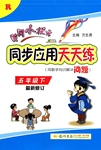题目内容
阅读理解
The stamp collector can learn a great deal from the colorful pieces of paper he puts in his album. Besides learning some basic things about organization and systematic arrangement, the stamp collector can receive a good course in history and geography from stamps. As a collector progresses and becomes more specialized (有的), stamps teach him some basic facts about carving, paper, and printing.
Stamps are excellent sources of historical information. Almost every nation celebrates its military heroes and political leaders on its postage stamps. But scientists and artists, from Einstein to Beethoven, also grace the stamps of the world. Famous battles are frequently printed, as well as buildings and scenes which have historical importance.
Stamps also offer instruction in geography. Nations like Liechtenstein, San Marino, Andorra, and Afghanistan, while unknown to many, are usually quite familiar to stamp collectors.
To the layman, most stamps appear pretty much the same. But armed with a magnifying glass (放大镜) the more specialized collector can tell the difference between a common issue and a rare (稀有的) variety.
1.Which of the following statements do you think best describes the main idea of the essay?
[ ]
A.A stamp collector must have a great deal of knowledge in history and geography.
B. A stamp collector should be good at organization and systematic arrangement.
C.A stamp collector can learn a lot from the stamps he collects.
D.A stamp collector is a specialist who knows much about carving paper and printing.
2.The word “album” in the first sentence means ________.
[ ]
A.a holder for sets of discs (唱片)
B.a blank book used for collecting stamps
C.a frame in which the best stamps are displayed
D.a small box where colorful stamps are kept
3.“Basic things about organization and systematic arrangement” refers to ________.
[ ]
A.postal organizations and systems that print and issue new stamps
B.various organizations and systems that sell new stamps
C.organizations all over the world that offer help to stamp collectors
D.knowledge or information about how to organize and arrange things in good order
4.Which of the following statements is NOT true?
[ ]
A.Almost all nations produce stamps celebrating their military heroes or political leaders.
B.Famous battles and buildings of historical importance are frequently printed on stamps.
C.Few scientists and artists appear on stamps.
D.Scientists and artists as well as political and military leaders are celebrated on stamps.
5.A layman is a person who ________.
[ ]
A.has just started collecting stamps
B.is a beginning collector
C.is not very much interested in stamp collecting
D.does not have much professional (专业的) knowledge

 双基同步导航训练系列答案
双基同步导航训练系列答案 黄冈小状元同步计算天天练系列答案
黄冈小状元同步计算天天练系列答案
| |||||||||||||||||||||||||||||||||||||||||||||
| |||||||||||||||||||||||||||||||||||||||||||||||||||||||||||
| |||||||||||||||||||||||||||||||||||||||||||||||||||||||||||||||||||||||||||||||||||||||
| |||||||||||||||||||||||||||||||||||||||||||||||||||||||||||||||||||||||||||||||||||||||||||||||||||||||||||||||||||||||||||||||||||||||||||||||||||||||||||||||||||||||||||||||||||||||||||||||||||||||||||||||||||||||||||||||||||||||||||||||||||||||||||||||||||||||||||||||||||||||||||